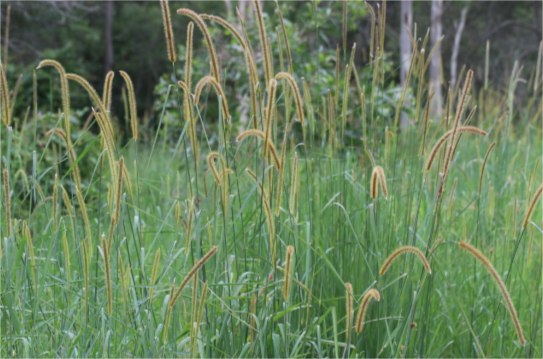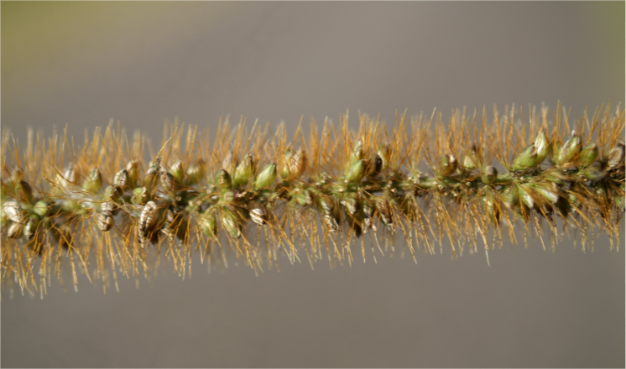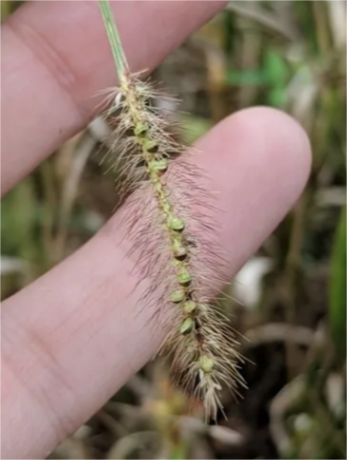African Bristle Grass
African Bristle Grass thrives in well-drained soil, full sun, moderate moisture, non-edible, and non-medicinal..

Habit
Grass
Height
1-3 ft
Growth
Fast
Soil
Well-drained
Shade
Full
Moisture
Moderate
Edible
No
Medicinal
No
Origin
Africa
Climatic Condition
Tropical, Sub Tropical
Temperature (°)
18-32°C
Humidity (%)
50-85%
Potting media
Cocopeat+Soil
Fertilizers
Nitrogen Rich(20:10:10)
Watering
Moderate, Avoid Waterlogging
Plant Weight
50-200 g
Flowering Time
Seasonal
Soil Ph level
5.5-7.5
Water Ph level
6.0-7.5
Soil EC
1-2 dS/m
Yield Per Plant
Ornamental
NPK ratio
10:10:10
life Span
2-3 yrs
Health Benefits
Suggested Grow Media or Potting Mix ?
50% compost, 25% peat moss, 25% sand.
Suggested Fertigation/Fertilizers
Fertilize every 8 weeks with balanced fertilizer.
Common Diseases and Remedies
Leaf Spot, Rust, Powdery Mildew, Aphid Infestation, Root Rot
Brown or black lesions on leaves, Reddish or orange pustules on leaves, White powdery growth on leaves, Distorted leaves, sticky residue, Wilting, stunted growth, yellowing leaves
Neem oil, Compost tea, sulfur spray, improve air circulation, Insecticidal soap, Improve soil drainage.
Copper-based fungicides, Fungicides with propiconazole ,Sulfur-based fungicides, Chemical insecticides, Soil-applied fungicides
HEALTH BENEFITS
Africa bristle grass (scientific name Setaria sphacelata) is a common grass species found in tropical regions of Africa and Asia. While it is primarily known for its use as a forage grass for livestock, there are some traditional uses and health-related benefits associated with it. Here are a few potential health benefits:
1. Anti-inflammatory properties: Some studies suggest that Africa bristle grass may have anti-inflammatory effects. It has been used in traditional medicine to alleviate pain and reduce swelling, especially in the treatment of joint pain or inflammatory conditions.
2. Antioxidant effects: Certain compounds found in Africa bristle grass have been shown to possess antioxidant properties, which help protect cells from oxidative damage and reduce the risk of chronic diseases, such as heart disease and cancer.
3. Digestive aid: In some traditional practices, Africa bristle grass is used to treat digestive issues like diarrhea or indigestion. The grass is believed to have mild digestive-stimulating properties.
4. Fever reduction: Some African communities use Africa bristle grass to reduce fever. It is believed that the grass may have a cooling effect on the body and help lower elevated body temperature.
5. Blood sugar regulation: Though not extensively studied, there are claims in traditional medicine that Africa bristle grass may help regulate blood sugar levels, making it potentially useful for managing diabetes.As with any plant, it's essential to consult with a healthcare professional before using Africa bristle grass for medicinal purposes, especially as there may be side effects or interactions with other treatments. Most of the research on its health benefits is still in the early stages, and further studies are needed to confirm its efficacy.

